When it comes to treating a substance abuse disorder, there are a lot of important steps to undergo. The client must be detoxed and aided through their withdrawal, which makes them sober in the short term. However, after the initial treatment, the doctor’s job still isn’t over. Relapses are common and hard to avoid if the client is simply released back into their normal life, and such a relapse can send the client back into treatment to start the whole process over again.
But what can be done to prevent a relapse? They’re easy enough to avoid while in a rehabilitation center, but proper treatment will keep the client from relapsing when in the real world and forced to deal with all the stressors and triggers that daily life has to offer.
Therapy and Support
One of the biggest parts of preventing a drug relapse involves helping the client build a trusted support group they can turn to when they’re struggling. Stress is one of the number one causes of relapse. Feeling alone and isolated only makes mental health problems more severe, and it was proven that having even one helpful person in a support system can reduce the likelihood of a substance abuse disorder making a comeback.
In many cases, this support network can be built by joining a substance abuse counseling group and seeking out other people with similar stories to yours. This gives you an opportunity to share your thoughts and problems without judgment, as well as to hear the stories of others and build relationships. Being surrounded by people who understand ensures that you don’t feel alone in your ongoing journey to stay sober and healthy.
Dual Diagnosis Treatment
Going to therapy isn’t simply reserved for someone dealing with a substance abuse disorder. Therapy can also help with the underlying causes of the disorder, including other pre-existing mental disorders. These disorders, such as depression and anxiety, play a big role in causing a person to cope via the use of alcohol or drugs. This is what’s known as a dual diagnosis, also called comorbidity, and these diagnoses are incredibly common.
In these cases, a larger individualized effort is needed to confront and deal with a dual diagnosis situation. This is because every client’s case is different, and there are various possible disorders that can become comorbid with a substance abuse disorder. The most common form involves substance abuse disorders appearing alongside or as the result of depression or anxiety. Because depression and anxiety are linked to the prevalence of substance abuse disorders, this is another reason why therapy is so important in preventing a relapse.
However, depending on the disorder, different treatments might be necessary. For example, post-traumatic stress disorder often comes with emotional triggers that can be extremely distressing, and this emotional distress may result in someone returning to alcohol or drug usage. A therapy that tackles a dual diagnosis of PTSD and substance abuse would have to teach the client to handle these triggers without substances.
There are various forms of therapy one can try, and many of them have to do with practicing mindfulness exercises in addition to talking with a group or a professional. But what is mindfulness, and how does it help?
Mindfulness and Meditation
Mindfulness involves entering a state where you’re more aware of and more appreciative of your surroundings, your feelings, and the feelings of other people. Many mindfulness techniques are also forms of meditation, but technically, they’re two separate concepts with the same goal and many similar strategies. After practicing mindfulness techniques, the client teaches them to love and respect themselves and their problems without judgment. Poor self-care is a serious factor when it comes to a relapse and mindfulness exercises seek to help with that problem.
In addition to your basic meditation, mindfulness exercises include activities that are proven to be therapeutic but aren’t always thought about. These include art therapy, nature walks, and exercising. Finding an exercise that works for the client will help them build habits that allow them to relax, think, and accept their flaws without judgment. While it’s unclear if mindfulness exercises alone can prevent a relapse better than other treatment methods, it has been shown that mindfulness techniques can help with symptoms of depression and anxiety, which ultimately helps to treat some of the underlying causes of substance abuse disorder.
Mindfulness exercises may seem complicated at first because they require concentration and self-acceptance. However, many of them can be integrated into daily life without much of a hassle, and the more they’re practiced, the easier they’ll become. The key is ultimately to focus on your surroundings and acknowledge your feelings without shaming yourself for feeling them. You can practice being mindful on a commute to work, while waiting for your dinner to cook, or even while doing the things you already enjoy doing.
Find a New or Old Hobby
Practicing mindfulness and developing a support system both help to boost self-compassion and offer an emotional outlet when things become stressful. However, the activities mentioned as mindfulness therapies can help even without going into a deep-thinking state. On their own, they can all help in different ways, whether by keeping your mind occupied, keeping you physically healthy or by offering a creative way to understand your emotions.
This is why seeking out various hobbies can also prevent a substance abuse relapse. Not only are you doing something you enjoy and don’t mind spending time focusing on, but you’re also training yourself to seek out alternative methods of stress relief. Such hobbies can include, but are certainly not limited to:
Creative Endeavors
Whether done as a form of therapy or simply out of personal interest and inspiration, creative projects are a good outlet to help combat stressors and keep your mind occupied. These projects can include painting images of places you enjoy or would like to visit, writing about your feelings in a journal, or putting those same feelings into a work of written fiction, and craftwork that involves a lot of skill and practice to achieve. Focusing on art not only keeps you engaged in something relaxing, but it can also be incredibly personal, offering a way to convey how you feel or even explore stressful subject matter in a safe way.
Exercise
While it may be surprising to hear, exercising does more than simply increase your physical strength and burn calories. The act of exercising can reduce feelings of anxiety and stress. It combats depression, improves self-image, and has effects compared to anti-depressant medication. It’s good both physically and mentally, and can quickly become another stress-relieving habit, giving you something productive to do and focus on.
The good effects of exercise are increased if the exercise is taking place outside, as being out in the sunlight can also help improve your mood, with or without deep-thinking and awareness exercises. Being outside can make you feel more connected to nature and more at ease with your problems and worries. This is why nature walks are an excellent form of mindfulness therapy, as well as a good way to relax in general.
Video Games
You read that one right. Playing video games does have the power to help people relax and distract themselves from stressful situations. There are multiple mobile phone apps designed to feature uncomplicated but rewarding gameplay that makes you happy or relaxed when you play them. So, while games might seem like they’re unproductive, in many cases, they have mental health and emotional health benefits that a relapse prevention strategy could take advantage of.
Cooking
Stress is often caused by the unpredictable, so a rule-based hobby like cooking can reduce stress by offering predictable and repeatable results, as well as enough flexibility to still be creative and entertaining. It’s no wonder that a study revealed cooking has a positive effect on the quality of life and self-esteem. It’s an excellent way to be productive without needing to stress over the results.
Seek Professional Addiction Help When You Need It
Dealing with a substance abuse disorder, at any stage of the disorder, can be challenging. Even with the help of a support group and various therapies, it’s still possible to have trouble staying away from substances. That’s why the number one piece of advice we can impart to you going forward is, to be honest with and compassionate towards yourself. Whether you’ve been sober for months or still haven’t gone to rehab yet, there’s no need to make it more difficult for yourself by going it alone.
Please reach out if we can help. We’re here for you and will work with you on developing relapse prevention skills to help you on your ongoing journey. Just reach out.

CADC II, Certified AOD Counselor
Nora Jenkins has made the quality and committed care we provide at Lilac Recovery Center possible. Nora is experienced in providing care to assist in rebuilding relationships to support healthy, long-term recovery. Her professional background includes clinical management, program administration, and counseling.







